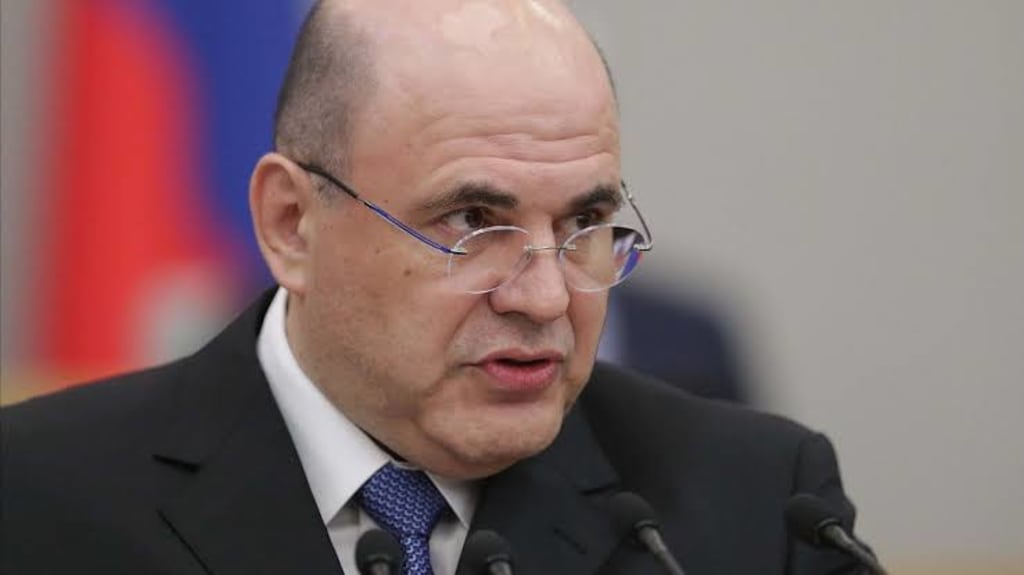#Russia to Crack Down on TikTok and Anime Platforms Over Cybersecurity Concerns: Ban Set for August 1, 2024"
"Russia to Crack Down on TikTok and Anime Platforms Over Cybersecurity Concerns: Ban Set for August 1, 2024"

On August 1, 2024, the Prime Minister of Russia made a controversial announcement that sent shockwaves across the country and the world. In a press conference broadcasted live on national television, the Prime Minister declared that starting from that day, the popular social media platform TikTok and various anime platforms would be banned and blocked in the country. The reason cited for this drastic decision was the looming cybersecurity threats that were posed by these platforms.
The announcement was met with immediate backlash from millions of Russian citizens, especially the youth who make up a large portion of TikTok and anime enthusiasts in the country. Many took to social media to express their outrage and frustration over the ban, arguing that it infringed on their freedom of expression and right to access information. The move also sparked concerns about censorship and government control over online content in the country.
The decision to ban TikTok and anime platforms was not taken lightly by the government. It came after months of deliberation and analysis by cybersecurity experts who had raised red flags about the potential risks these platforms posed to national security. According to government sources, there were growing concerns about the use of these platforms by foreign actors to spread misinformation, incite unrest, and gather sensitive information on Russian citizens.
TikTok, in particular, has come under scrutiny in recent years for its data collection practices and alleged ties to the Chinese government. The platform, which has millions of users in Russia, has been accused of sharing user data with the Chinese authorities and using it for surveillance purposes. The government feared that this could compromise the personal information and privacy of Russian citizens, making them vulnerable to cyber attacks and espionage.
Similarly, anime platforms were singled out for their potential to be exploited by malicious actors to spread propaganda and radicalize young people. The government pointed to instances where extremist groups had used anime content to recruit and incite violence among vulnerable individuals. By banning these platforms, the government hoped to stem the flow of harmful content and protect the youth from being influenced by dangerous ideologies.
The decision to ban TikTok and anime platforms was not without precedent. In recent years, several countries including India and the United States had taken similar steps to restrict access to these platforms over national security concerns. The Russian government saw the ban as a necessary measure to safeguard its citizens and protect its sovereignty in the face of evolving cyber threats.
The ban on TikTok and anime platforms also reflected the government's larger strategy to assert control over the digital space in Russia. In recent years, the Kremlin had tightened its grip on the internet by passing laws that gave it greater authority to monitor and censor online content. The ban on these platforms was just the latest in a series of measures aimed at regulating the online landscape and ensuring that it aligned with the government's interests.
Despite the government's justifications for the ban, many critics saw it as a heavy-handed and disproportionate response to the perceived cybersecurity threats. They argued that the move would only further alienate young people and stifle creative expression in the country. Some also questioned the government's motives, suggesting that the ban was driven more by political considerations rather than genuine security concerns.
As the ban came into effect on August 1, 2024, Russian citizens braced themselves for a new era of internet censorship and surveillance. The loss of TikTok and anime platforms marked a significant blow to their online freedoms and cultural experiences. While the government maintained that the ban was necessary to protect national security, its impact on the country's digital landscape and civil liberties remained to be seen. Only time would tell whether the ban would prove to be an effective deterrent against cyber threats or a blunt tool of political control.
About the Creator
Enjoyed the story? Support the Creator.
Subscribe for free to receive all their stories in your feed.






Comments (1)
Thank you for your interesting and exciting stories. Follow my stories now.